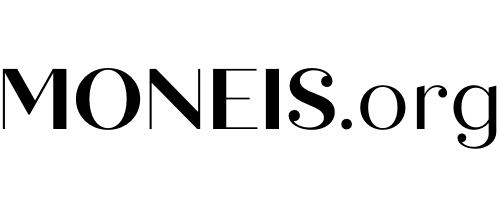When it comes to an insurance policy review, many find it overwhelming. This article cuts through the complexity, offering top tips to make the process clear and straightforward.
You'll learn how to evaluate your policy effectively. The goal is to empower you with knowledge for smarter, more straightforward insurance decisions.
Reviewing Your Policy: The Why?
Regular reviews of your insurance coverage are crucial. It ensures your policy matches your current needs and lifestyle. As life changes, so do your insurance requirements.
Regular checks help avoid overpaying or underinsurance. It's about aligning your policy with life's shifts. This practice guards against unforeseen financial strains.
Policy Basics: A Brief Intro
Understanding the nuances of your policy is key.
Policy Types Overview
Different life stages and assets need different insurance protections.
- Life Insurance: Safeguards your loved ones' financial future.
- Health Insurance: Covers medical expenses, both routine and unexpected.
- Auto Insurance: Protects against vehicle-related damages or losses.
- Home Insurance: Shields your home and belongings from various risks.
Decoding Insurance Terms
Knowing insurance jargon is essential for effective policy review. Terms like 'premium,' 'deductible,' and 'coverage limit' impact your decisions. Understanding these terms helps in comparing policies accurately.
It's about making informed choices. This clarity reduces confusion and aids in policy optimization. Grasping these terms is a stepping stone to better insurance management.
Coverage Analysis: An Introduction
Reviewing coverage is about ensuring it fits your current life stage.
Evaluating Coverage Needs
Assessing coverage needs involves examining your lifestyle, assets, and risks. It's about finding the balance between adequate protection and affordability.
Consider changes in income, family size, or new assets. Regular evaluation helps in timely policy updates. This step prevents financial surprises during claims. It's a proactive approach to insurance planning.
Risk vs. Coverage
Compare your existing coverage with potential risks. Life changes like marriage, parenthood, or property acquisition alter risk profiles. Evaluate if your policy covers these new risks adequately.
Consider scenarios like illness, accidents, or natural disasters. This comparison helps identify coverage gaps. It's about being prepared for life's uncertainties.
Premiums and Deductibles: Starting Points
Understanding the cost structure of your policy is crucial.
Analyzing Premium Costs
Premium evaluation involves checking if you're getting value for money. Compare your premiums with similar plans in the market. Consider factors like inflation and changes in risk factors.
Lower premiums might mean less coverage, so balance costs with needs. Regularly review this to avoid overpaying. It's about cost-effective insurance planning.
Deductibles and Their Impact
Deductibles are what you pay before the insurance kicks in. Higher deductibles can lower premiums but increase out-of-pocket costs during claims. Assess your financial comfort with different deductible levels.
It's a trade-off between immediate costs and potential savings. Understand how deductibles affect claims and overall policy value. It's about finding the right balance for your financial situation.
Beneficiary Updates: Why It Matters?
Keeping beneficiary information current is crucial for policy effectiveness.
Maintaining Current Beneficiary Information
Updated beneficiary details ensure the right people benefit from your policy. Life events like marriages, divorces, or births warrant updates. Neglecting this can lead to legal complications or unintended consequences.
Regular reviews align your policy with your current wishes. It's about safeguarding your insurance intentions. This step is crucial for the effectiveness of life or health policies.
Updating Beneficiary Steps
Regular updates to your beneficiary information are vital for maintaining policy relevance.
- Review beneficiary information annually or after significant life events.
- Contact your insurance provider for updated procedures.
- Fill out the necessary forms accurately and completely.
- Provide precise and current information about each beneficiary.
- Keep a personal record of the changes made.
- Confirm with the insurer that updates are processed and reflected.
Exclusions and Limitations: Quick Overview
Knowing what your policy doesn't cover is as important as knowing what it does.
Uncovered Aspects of Insurance
Every policy has exclusions - areas it doesn't cover. These can include specific risks like natural disasters or certain medical conditions. Understanding these helps avoid unexpected financial burdens.
It's vital to read the fine print and ask questions. This knowledge is critical in assessing whether additional coverage is needed. Recognizing exclusions helps in making an informed insurance choice.
Impact of Limitations
Limitations dictate the extent of your policy's coverage. They can cap payouts or restrict coverage under certain conditions. Ignoring these can lead to insufficient protection during critical times.
Be aware of limits on high-value items or specific events. Understanding these helps in planning additional safeguards if needed. It's about ensuring comprehensive protection.
The Role of Professional Insurance Advice
Sometimes, navigating insurance policies requires expert input.
Consulting an Insurance Advisor
Consulting an advisor is wise when making significant policy changes. They're crucial for complex situations like starting a business or major life events.
Advisors can clarify confusing terms and conditions. Their expertise helps in tailoring policies to your specific needs.
It's about getting the right coverage without overspending. They help make informed decisions, providing peace of mind in your insurance journey.
Advantages of Expert Policy Review
Professional reviews bring a new perspective to your coverage. They can identify gaps or overlaps in policies.
Experts offer tailored advice that suits your unique circumstances. They stay updated on industry changes, benefiting your policy.
Their guidance can save money and enhance protection. It's an investment in ensuring your insurance fully serves its purpose.
Adjusting Coverage for Life Changes
Life events like marriage, childbirth, or career shifts demand policy reevaluation.
Adapting to Life Transitions
Significant life changes should trigger a policy review. Marriage, having children, or changing careers can alter your insurance needs. Adjusting your policy ensures it remains relevant to your life's current chapter.
It's about maintaining a balance between over-insurance and gaps in coverage. Reflecting these life changes in your policy is critical to optimal protection. This proactive step helps in keeping your insurance aligned with your evolving circumstances.
Final Insights: Streamlining Your Insurance Review
Concluding your insurance policy review with clarity is essential. This process ensures your coverage aligns with your current and future needs.
Embrace the journey of understanding and adapting your policy. Regular reviews and updates are key to maintaining adequate insurance protection.




